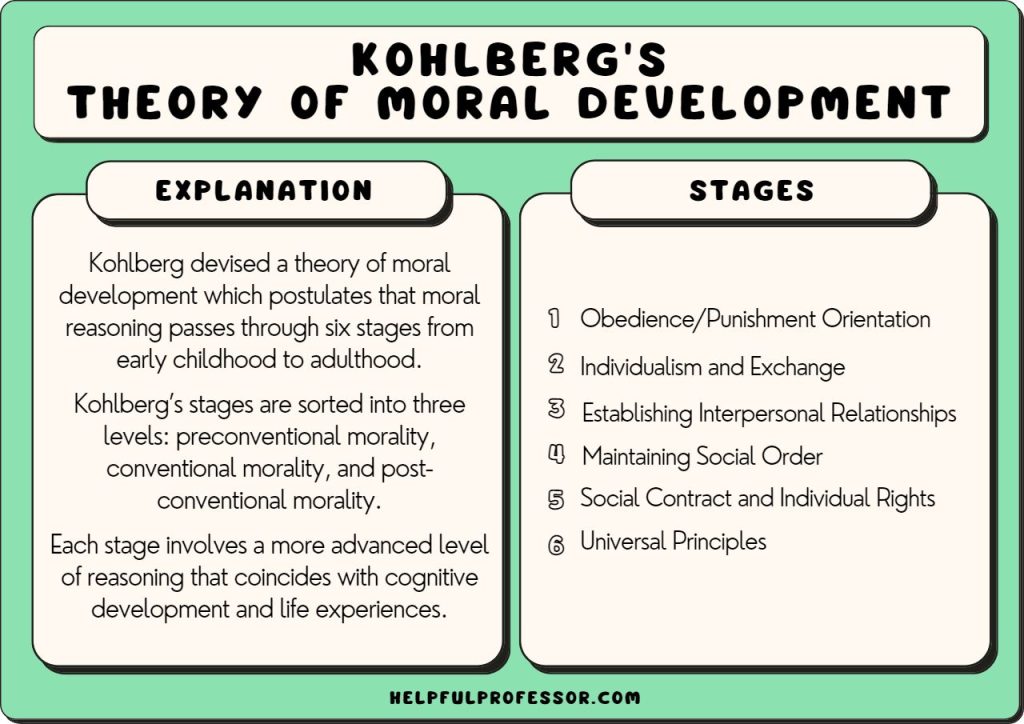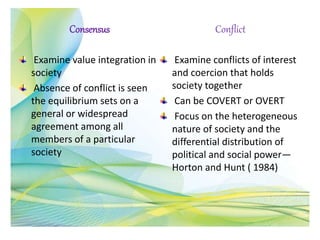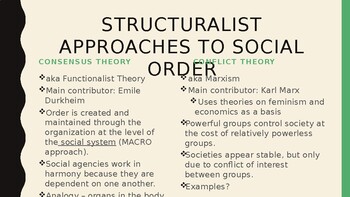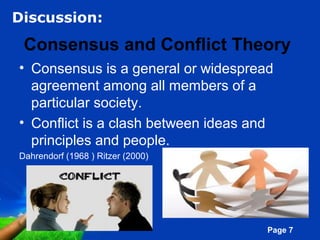Consensus theory is a sociological perspective that suggests that societies are held together by a shared set of values, norms, and beliefs. According to consensus theory, social order is maintained through the use of social norms, institutions, and systems of governance, and the general agreement of members within a society about the rules and values that govern their behavior.
One example of consensus theory in society can be seen in the way that laws are created and enforced. In most societies, laws are developed through a process of negotiation and compromise between different groups and individuals, with the aim of creating a set of rules that are acceptable to the majority of people. This process relies on the idea of social consensus, as the laws that are enacted reflect the values and beliefs of the society as a whole.
Another example of consensus theory in society is the way that social norms are enforced. Social norms are unwritten rules that govern the behavior of members of a society, and they are often enforced through social sanctions such as shame, ridicule, or exclusion. For example, in many societies, it is considered a social norm to shake hands when introducing oneself or to say "please" and "thank you" when making requests or receiving something. These norms are upheld through the use of social pressure, as individuals who do not follow these norms may be ostracized or ostracized by their peers.
A third example of consensus theory in society can be seen in the way that cultural values are transmitted and maintained. Culture is a set of shared beliefs, values, and practices that are passed down from one generation to the next, and it is an important element of social cohesion. Cultural values, such as respect for authority, the importance of family, and the value of hard work, are often upheld through socialization and education, and they help to shape the behavior and attitudes of members of a society.
In conclusion, consensus theory suggests that societies are held together by a shared set of values, norms, and beliefs, and that social order is maintained through the use of social norms, institutions, and systems of governance. This perspective can be seen in the way that laws are created and enforced, the way that social norms are upheld, and the way that cultural values are transmitted and maintained.








